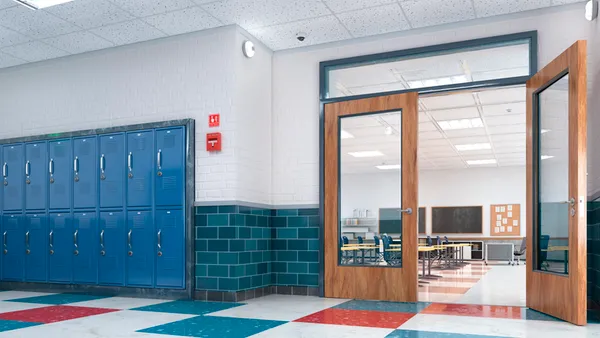Dive Brief:
- More than two-thirds of adults (68%) support efforts to restrict cellphone use for middle and high school students during class, but only 36% say the devices should be off-limits for these students the entire school day, according to polling released Monday from Pew Research Center.
- For parents of children in K-12, 65% support a classroom ban, while 36% — the same share as for all adults — favor all-day restrictions. Adults ages 50 and above, as well as Republican or Republican leaning adults were more in favor of classroom and all-day bans, compared to younger adults and Democrats.
- A growing movement to limit school cellphone use has garnered broad praise from educators, but some parents as well as disability rights advocates have raised safety and access concerns.
Dive Insight:
Asked why they favor cellphone bans, 98% of supporters told Pew that phone-free policies would lead to less distractions in class. Other reasons included better social skill development, less likelihood of cheating, and reduced bullying.
Educators and policymakers who have backed cellphone bans say the policies reduce classroom distractions and support students' mental health by limiting their time on social media.
A 2023 Common Sense Media study found 97% of 11- to 17-year-olds used their phones during the school day. When using phones during the school day, students were most likely to turn to social media (32%), YouTube (26%) and gaming (17%), according to the analysis of smartphone data of 200 students.
In Pew's survey, of those opposing school cellphone bans, 60% said the policies keep parents from contacting their child when needed. Other major reasons cited in opposition included: The policies are hard for teachers to enforce (37%), cellphones can be a useful teaching tool (31%), and parents should decide when their children can use their phones in class (32%).
A Kaiser Family Foundation paper released last month said research is limited on the effectiveness of school cellphone bans and cited challenges like enforcement, accommodating exceptions and equitable practices.
Pew's survey results were drawn from 5,110 respondents surveyed Sept. 30-Oct. 6.















